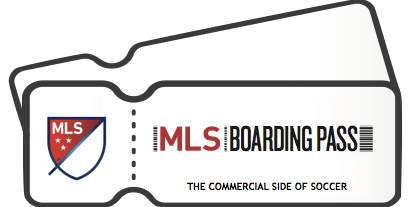February 5 2017 marks the three-year anniversary of the announcement to bring Major League Soccer to Miami.
For those waiting, that wait is still on.
But news about the franchise’s official entry into the league could come before the end of the year. And the expectation is they will announce entry for the 2019 MLS season.
Some ugly truths.
There have been many to face up since February 2017; not least the short-sightedness to which this deal could be done.
But in short, most of their problems hinge on being unable to secure a stadium site. And still do.
Building a soccer-specific stadium was a key caveat in the league’s agreement with Beckham to launch the franchise, and they were clear they wouldn’t have a problem pulling such a bid should this criteria not be met. (It is worth noting the league bypassed their own informal rule for NYCFC to play in a temporary stadium).
This is where the Beckham group have fallen short: they had bids for three potential stadium locations – on Miami Port, one in downtown Miami, and one at Marlins Park – all met with uncertainty from Miami county officials which ultimately rendered the franchise a none starter.
But recently, plans came as close to fruition as they’ve ever been when the group secured $19m worth of land in Miami’s Overtown neighbourhood, marking the first time they have actually made a purchase on a piece of land. And making the whole thing at least somewhat more official.
Yet things have been quiet since.
Next, investment.
With the total cost for the land and stadium looking around a significant $300 million, nailing down an investment partner to add some vim and funding to the proceedings is the decisive next move for them to meet their ambitions in Miami.
Only one potential partner has been announced publicly so far: Wesley Edens.
Not only does Edens bring the funding the group are looking for in a partner, but also an acquired experience set (he is an owner of the NBA’s Milwaukee Bucks) and some additional resources – he is a Miami-to-Orlando railway investor giving them access to some commercial rail real estate nearby to the Overtown land they have purchased, which reportedly provides them (and the stadium) with a solution to parking space.
But time could be running out…
The decision to choose Miami made a lot of sense – glamorous, sunny, international – but without the land to build a stadium or if they don’t get the money to privately finance it, the question must be asked: at what point is Miami more trouble than it’s worth?
Atlanta United (announced two months after the Miami team) is set to begin play next season. LAFC, (announced almost nine months after Miami) is also set to join in 2018 with a brand new stadium; as are Minnesota United (announced almost 14 months after Miami).
And given the league’s intension to expand to 28 teams (unofficially, Miami would be the league’s 24th franchise), they have a long waiting list of potential suitors for franchise numbers 25-28 should Miami not get this right.
Charlotte, Cincinnati, Detroit, Las Vegas, Nashville, Phoenix, Sacramento, San Antonio, San Diego and St. Louis form the growing shortlist of interested expansion towns somewhere along the process of putting together an ownership group, a stadium plan, and in most cases can already point to would-be fan bases with a history of supporting a local team no matter their performance.
… but surely Miami is worth the wait.
Clearly, this was a more difficult sell than expected – with pressing questions asked and hurdles in negotiations – but at three years in the making, this is a group with the vision and intension to bring soccer to Miami by 2019.
And progress has been made.
They have the right site, the right ownership group (boosted by the addition of MLS legend and the man responsible for Beckham’s original venture to L.A, Tim Leiweke – who joins partners Simon Fuller and Bolivian billionaire/ Sprint CEO Marcelo Claure), and are demonstrating, as a city, that they have a fan base ready to support in an MLS franchise in Miami (they can point to the success of two lower division Miami sides as an example of soccer’s growing influence in the area).
So for now, things could be on track for 2019. Great things take time.

